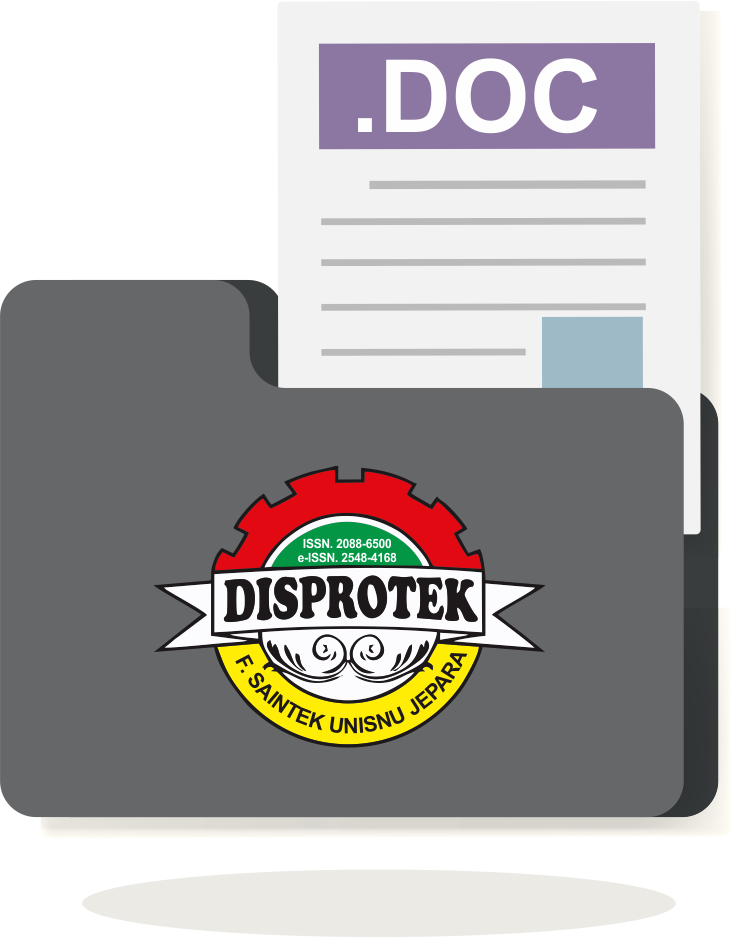ANALISIS STRATEGI PEMASARAN EKOWISATA MENGGUNAKAN METODE SWOT DAN QSPM
Abstract
The Special Region of Yogyakarta has a wealth of potential natural resources that can be used as capital to develop the tourism industry by utilizing natural potential. One of the nature-based tourism developed in Indonesia is Ecotourism, located on Jalan Kaliurang. The growing proliferation of nature-based tourism is one of the challenges for the Ecotourism manager because there are more and more competitors. So the purpose of this research is to determine the right marketing strategy to be implemented by the Ecotourism manager. This research is expected to positively impact the development of Ecotourism so that more and more tourists come to visit, which will improve the Meconomy of the community around Ecotourism. Data collection methods used are interviews and observation. The data analysis method used is SWOT analysis and quantitative strategic planning matrix method. The data processing results using SWOT analysis show that Ecotourism is in a "strong" and "opportunistic" position. The alternative strategy recommended is to create better branding regarding Ecotourism products and services to both visitors and stakeholders and maintain the sustainability of Ecotourism by managing products, customers, stakeholders, and society. In comparison, the results of the QSPM method produce a recommended strategy to be carried out by the Ecotourism manager, namely maintaining Ecotourism's sustainability by managing products, customers, stakeholders, and society.
Keywords
Full Text:
PDFReferences
X. T. Tuxtayeva, D. A. Rgamova and B. Z. Hamroyeva, "The Potential of Ecotourism in the Economic and Social Development of Bukhara Region," Zien Journal of Social Sciences and Humanities, vol. 8, no. 1, pp. 155 - 158, 2022.
V. R. Vitasurya, "Local Wisdom for Sustainable Development of Rural Tourism, Case on Kalibiru and Lopati Village,Province of Daerah Istimewa Yogyakarta," Procedia - Social and Behavioral Sciences, vol. 216, no. 1, pp. 97 - 108, 2016.
E. Rusdiananingtyas, H. Ribawanto and W. Y. Prasetyo, "Implementasi Strategi Pemerintah Daerah Dalam Mewujudkan Pariwisata Berbasis Budaya Terkemuka (Studi pada Dinas Pariwisata Provinsi Daerah Istimewa Yogyakarta)," Jurnal Administrasi Publik (JAP), vol. 1, no. 11, pp. 1898-1904, 2015.
S. Afriani and N. Susanti, "Analisis Strategi Pemasaran Wisata Sejarah (Rumah Bung Karno dan Rumah Fatmawati) di Kota Bengkulu," Ekombis review, vol. 5, no. 1, pp. 25 - 35, 2017.
S. K. Mallick, S. Rudra and R. Samanta, "Sustainable Ecotourism Development Using SWOT and QSPM Approach: A Study on Rameswaram, Tamil Nadu," International Journal of Geoheritage and Parks, vol. 8, no. 1, pp. 185 - 193, 2020.
A. Ghorbani, V. Raufirad, P. Rafiaani and H. Azadi, "Ecotourism Sustainable Development Strategies Using SWOT and QSPM Model: A Case Study of Kaji Namakzar Wetland, South Khorasan Province, Iran," Tourism Management Perspectives, vol. 16, no. 1, pp. 290 - 297, 2015.
A. R. Kubro and N. O. Amir, "Strategi Pengembangan Ekowisata Mangrove Muara Bengawan Solo Di Desa Pangkah Wetan, Kecamatan Ujungpangkah, Kabupaten Gresik," Journal of Agricultural Socioeconomics and Business, vol. 1, no. 2, pp. 34 - 44, 2018.
F. Rangkuti, Analisis SWOT, Teknik Membedah Kasus Bisnis, Jakarta: Gramedia Pustaka Utama, 1998.
M. Muhammad, "Analisis SWOT sebagai Strategi Pengembangan Usahatani Buah Naga Merah (Hylocereus costaricensis) Kecamatan Wasile Timur Kabupaten Halmahera Timur," Jurnal Agribisnis Perikanan, vol. 11, no. 1, pp. 28 - 37, 2018.
Z. Nisak, "Analisis SWOT untuk menentukan strategi kompetitif," Jurnal Ekbis, vol. 2, no. 1, pp. 268 - 476, 2013.
S. Riyanto, Analisis Pemecahan Masalah dan Pengambilan Keputusan Strategis, Jakarta: Gramedia Pustaka Utama, 2022.
J. H. Yam, Manajemen Strategi, Konsep dan Implementasi, Makasar: Nas Media Pustaka, 2020.
H. Setyorini, M. Effendi and I. Santoso, "Analisis Strategi Pemasaran Menggunakan Matriks SWOT dan QSPM (Studi Kasus: Restoran WS Soekarno Hatta Malang)," Industria: Jurnal Teknologi dan Manajemen Agroindustr, vol. 5, no. 1, pp. 46 - 53, 2016.
H. Abbasi, S. Khanmoradi, H. Eidi and N. Rasekh, "Quantitative Strategic Planning of General Office of Sports and Youth in Regard to Championship Sport Using QSPM in Kermanshah," International Journal of Sports Science, vol. 6, no. 2, pp. 36 - 45, 2016.
M. Harisudin. Analisis Strategi Pemasaran pada Ekowisata Menggunakan Metode Analisis SWOT dan Quantitative Strategic Planning Matrix (QSPM). Laporan Tugas Akhir, Program Studi Teknik Industri, Fakultas Teknologi Industri, Universitas Islam Indonesia, Yogyakarta, 2022.
DOI: https://doi.org/10.34001/jdpt.v14i1.4590
Article Metrics

This work is licensed under a Creative Commons Attribution-ShareAlike 4.0 International License.
Disprotek Indexed by:
DISPROTEK: Journal of Informatics Engineering, Information Systems, Electrical Engineering, Industrial Engineering, Civil Engineering, and Aquaculture is licensed under a Creative Commons Attribution-ShareAlike 4.0 International License.

_001.png)




















